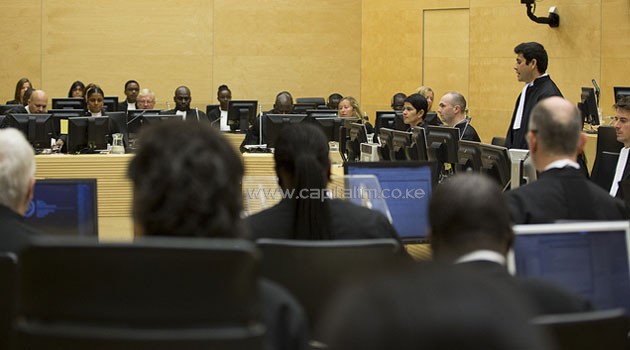
Muigai reiterated to Trial Chamber V (a) the Kenyan government’s position that even if the chamber travels to Kenya; he would not threaten sanctions against a citizen for refusing to testify/FILE
Muigai reiterated to Trial Chamber V (a) the Kenyan government’s position that even if the chamber travels to Kenya; he would not threaten sanctions against a citizen for refusing to testify.
“Can the ICC sit in Nairobi? Yes. In fact, it was us that first suggested that proposition and it was rejected by you. So to turn round and say that that can be visited on us can be very unfair. So the ICC can hear witnesses in Kenya, subject to the law,” he underscored.
He however said the law prohibited the ICC from sitting in Nairobi to hear evidence that was not voluntarily given by its citizens.
“If it is the seven witnesses that are alleged to have disappeared, whose identity I do not know, whose location I do not know, then we would have to have a legal procedure consistent with the treaty, consistent with the statute and consistent with Kenyan law,” he submitted to the Chamber.
He also ruled out the possibility of a Kenyan judge sitting on behalf of the ICC and hearing the compelled testimony of the seven witnesses who no longer wished to co-operate with the ICC prosecutor.
“That a Kenyan court would compel the witness on behalf of the ICC to be present in the Kenyan court, it would not,” he told Presiding Judge Chile Eboe-Osuji.
In his filing with the court on February 10, the Attorney General had also ruled out the possibility of having the seven unnamed, uncooperative witnesses compelled to testify before the court via video-link as it would still be an extension of it.
Compelling a Kenyan witness in Kenya to testify before the ICC, Muigai had submitted in his filing, would violate the International Crimes Act which requires the government to serve summonses but not to enforce them.
“These persons reserve the right to voluntarily comply with the summons or refuse to do so,” he had submitted.
Muigai made the submissions in response to ICC Prosecutor, Fatou Bensouda’s request that Trial Chamber V (a) issue summonses for the seven witnesses who were no longer co-operating with her office and then require the Kenyan government to enforce the summonses.
The Trial Chamber will finish hearing submissions on the prosecutor’s request on Monday with the Attorney General expected to have travelled back to Kenya.









































